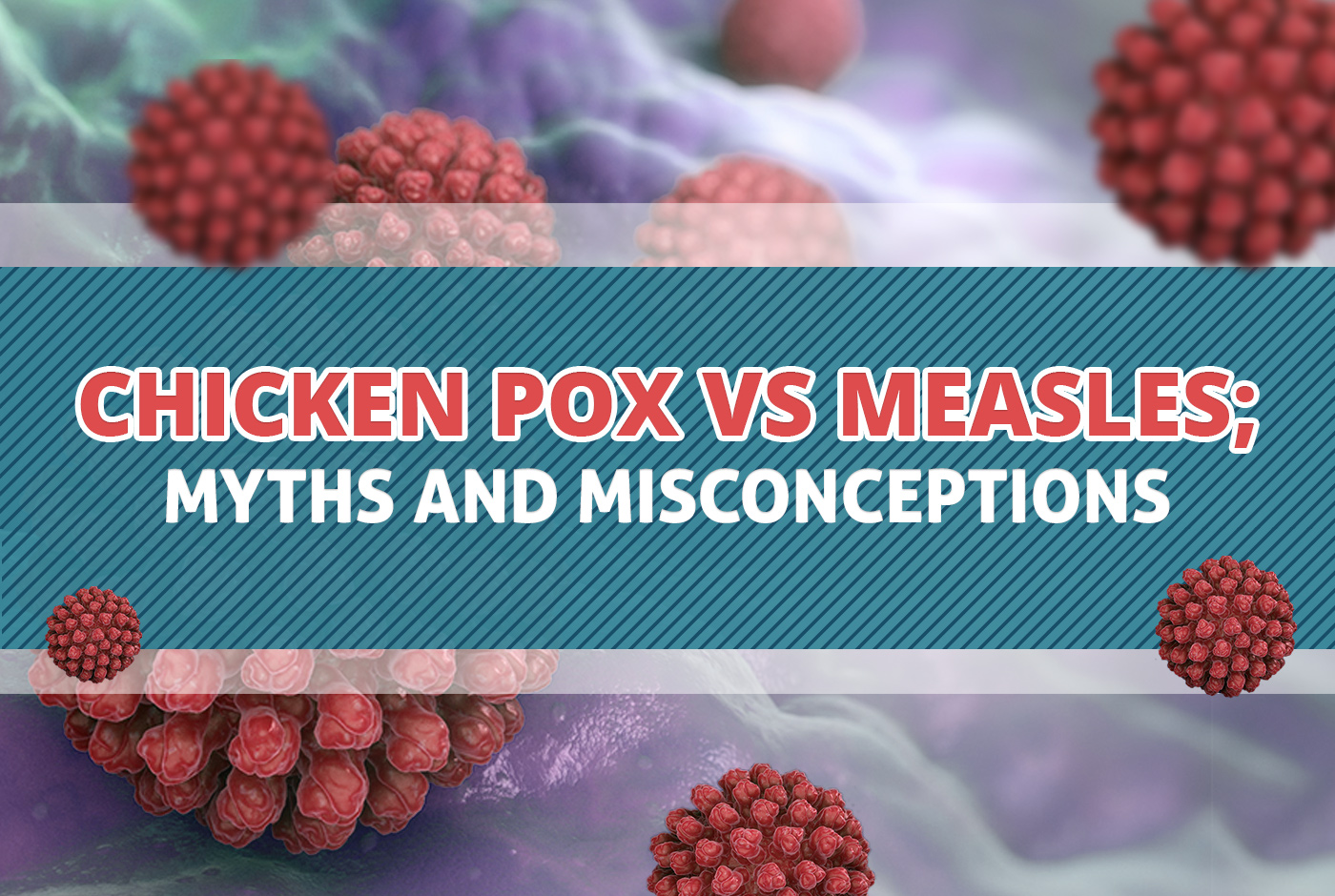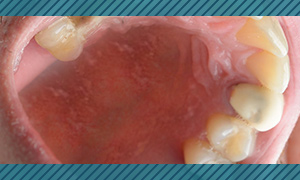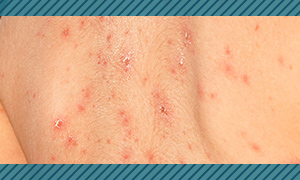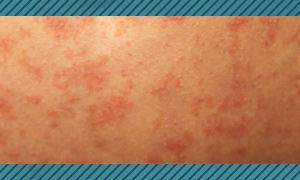Chicken pox vs Measles; Myths and Misconceptions
‹ Back
 ‹ Back
‹ Back

How well do you understand chicken pox and measles? Both infections are more prevalent with young children under five, but do you know that adults can also contract them? Many may have the misconception that being infected with chicken pox or measles will naturally help to build a child’s immune system earlier. However, some of the myths that you hear may not always be true. Let’s debunk some of these common misconceptions.
 Koplik's spots are unique to measles infection, and appear two to three days before the measles rash itself. They are characterized as clustered, white spots on the buccal mucosa (opposite the upper 1st & 2nd molars).
Koplik's spots are unique to measles infection, and appear two to three days before the measles rash itself. They are characterized as clustered, white spots on the buccal mucosa (opposite the upper 1st & 2nd molars).
-
Early exposure to chicken pox/ measles will help to build your child’s immune system
Fact: True/ False
Almost all persons, regardless of age who have contracted chicken pox or measles develop lifelong immunity to the disease. Children under 12 months old who contract chicken pox or measles are at increased risk of complications. Serious complications of chicken pox and measles include pneumonia, brain infection leading to intellectual disability, sepsis and even death. There is no way to tell in advance how severe a child’s symptoms will be. So it is not worth taking the chance of exposing a child to someone with the disease. The best way to protect infants and children against chickenpox and measles is to get them vaccinated. -
Adults will not contract chicken pox/ measles, only children do.
Fact: True/ False
Chicken pox and measles are highly contagious infections. They are spread by tiny droplets of saliva released into the air when someone who is contagious breathes, coughs, sneezes or speaks (this is sometimes called “droplet infection”). The chickenpox viruses may also spread through direct contact or by touching objects or clothing. All persons can contract chicken pox or measles at any age, especially if they have not been immunized against the infection -
Once I have contracted chicken pox/ measles , I am immune to it and will not contract it ever again.
Fact: True/ False
Yes, it is possible to get chickenpox more than once, but this is extremely rare. Most people who have had chickenpox won't get it again because they're immune to it for life. However, some people who have had chickenpox will develop a related condition called shingles later on. You can't get measles more than once after getting the infection. -
Practicing good hygiene, washing hands regularly and staying away from those with symptoms ensures that I will not contract chicken pox/ measles.
Fact: True/ False
It is true that practicing good hygiene plays a big part in preventing illnesses. However, persons infected with measles and chicken can also transmit the airborne viruses through coughing, sneezing. Furthermore, infected people can unknowingly spread measles to others four days before the rash appears. Those with chicken pox are also contagious 1-2 days before rashes appear. -
Vaccines are unsafe and unnecessary.
Fact: True/ False
There are really no natural preventive measures against chicken pox and measles. Vaccinations are the most effective way to prevent yourself from getting the illnesses regardless of age. There can be some side effects such as fever, rashes or temporary joint pain, but studies have shown that the vaccines are very safe and effective. It has been tested that the vaccines for chicken pox and measles are more the 95% and 97% effective respectively. In rare cases where persons still contract chicken pox or measles after vaccination, the symptoms are much milder and non-life-threatening, and recovery is much faster than those who are not immunised.
Vaccination in Singapore
Did you know that measles vaccination is mandatory by law in Singapore? All children need to receive their first dose of the vaccine at the age of 12 months and their second dose at 15-18 months. It is recommended for adults who have not been vaccinated before to get immunised too. You can take an antibody test to check if you are protected against measles and chicken pox. Chicken pox vaccination is currently an optional vaccination under the National Childhood immunisation schedule.Can you identify the differences between chicken pox and measles?
Below is the list of symptoms between the two illnesses.
Chicken Pox |
Measles |
|
|
Koplik's spots
 Koplik's spots are unique to measles infection, and appear two to three days before the measles rash itself. They are characterized as clustered, white spots on the buccal mucosa (opposite the upper 1st & 2nd molars).
Koplik's spots are unique to measles infection, and appear two to three days before the measles rash itself. They are characterized as clustered, white spots on the buccal mucosa (opposite the upper 1st & 2nd molars).















